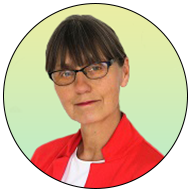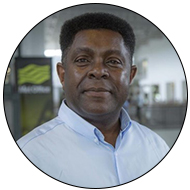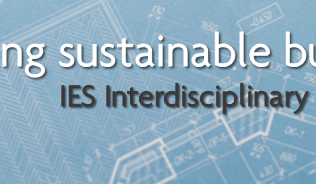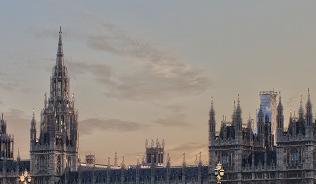At the IES, we aim for our trustees to represent a range of sectors, fields, career stages and life experiences, and to be able to come together to make key decisions with insight and balance. Ultimately, we want our trustees to reflect our members, our members to reflect the environmental sciences, and the environmental sciences to reflect wider society. Marking Trustees Week 2024, this blog will share our approach to trusteeship from the perspectives of four trustees - past and present - who came into their roles from underrepresented backgrounds in the environmental sciences.
To achieve this, we are working to make the process of applying for trustee roles as transparent and accessible as we can. Earlier this year our CEO, Adam Donnan, facilitated an online event featuring former trustees, including Julie Hill and Noel Nelson, which aimed to provide an overview of the application process but also a direct insight into life as a trustee. In the context of reflecting on our diversity this Trustees Week there are a few key takeaways worth highlighting from the wider discussion:
Reflections from former trustees
 Council Chair and former trustee Julie Hill MBE spoke about her experience combining trustee and other board roles with motherhood, explaining that the flexible responsibilities allowed her to continue developing her career and building connections in a way that worked around her personal life. As an organisation, we value being able to have Trustees with a range of life experience and perspectives, so it is key for us that the role is flexible enough to accommodate other important aspects of our Trustees’ lives and work.
Council Chair and former trustee Julie Hill MBE spoke about her experience combining trustee and other board roles with motherhood, explaining that the flexible responsibilities allowed her to continue developing her career and building connections in a way that worked around her personal life. As an organisation, we value being able to have Trustees with a range of life experience and perspectives, so it is key for us that the role is flexible enough to accommodate other important aspects of our Trustees’ lives and work.
Dr Noel Nelson, former trustee and Council Chair, also remarked on the importance of interdisciplinary thinking and varied perspectives. He shared that he decided to apply for the role as he felt he could add a different angle to discussions he was aware of at the IES, and reflected that he felt able to do this from his first meeting as a trustee. Noel found that the organisation and its governance structures encouraged the consideration of everyone’s views – whether on science or strategy – and felt welcomed and supported to input thoughts of his own. As a proponent of systems thinking, he pointed out that, to ensure decisions are well-informed, it is crucial to have as many parts of the system represented as possible. 
It was emphasised that no prior governance experience is needed to become a trustee, nor is experience of environmental science above the level required to be an IES Member. Although many trustees do have expertise in one or both areas, it is a priority for us to include the voices of those early in their careers in our governance and benefit from diverse viewpoints. Members can gain experience in governance by supporting Community Committees, Subcommittees or Steering Groups, but this is not a prerequisite. Succinctly put by Julie: “You don’t need to be qualified to ask good questions”!
Furthermore, there is no requirement for trustees to be UK-based. The IES is an increasingly international organisation, and the climate crisis is taking place on a global scale. As such, we actively encourage those based overseas to get involved and help us to avoid UK-centric perspectives.
Thoughts from our newest trustees
 This is the case for one of our newest trustees, Denise Adaoyibo Okpala, who lives in Nigeria. Denise has had a diverse career in environmental protection, scientific research and administration. She has a background in environmental planning and management, and is currently carrying out doctoral research in health systems and sustainability.
This is the case for one of our newest trustees, Denise Adaoyibo Okpala, who lives in Nigeria. Denise has had a diverse career in environmental protection, scientific research and administration. She has a background in environmental planning and management, and is currently carrying out doctoral research in health systems and sustainability.
She has worked for the Economic Community for West African States (ECOWAS) for close to 14 years and has taken up several roles over the years. Before Denise joined ECOWAS, she worked as a Scientific Officer at the Federal Ministry of Environment and the National Institution for Oceanographic and Marine Research.
One thing that Denise was keen to highlight was her positive experience attending meetings and training virtually, sharing how impressed she’s been with how engaging the sessions have been – she had been concerned that she might feel she was missing out not being able to attend in person but upon joining her first meetings felt reassured that this would not be the case, and she'd be able to get involved just as effectively remotely.
Denise added that engaging with the IES internationally has worked well despite occasional issues with internet and electricity supplies in Nigeria. Being able to access things like webinar recordings on-demand has proved useful, as has the ability to reach out to the IES staff team over email at a convenient time. This has meant that Denise hasn't felt that she's missed out on anything she hasn't been able to engage with live.
Denise has been an IES member for 8 years and was interested in becoming a trustee as a way to work collaboratively to support IES members to solve environmental issues. So far, she feels that the experience has been a rewarding one, as in addition to the ability to work with other trustees she’s also been able to learn more about the dynamics of organisational management from a new perspective, developing her own skills alongside making valuable contributions.
If Denise had one piece of advice for anyone considering trusteeship, particularly from underrepresented backgrounds, it would be to put their best foot forward and give it a shot! She has felt well-supported so far and would encourage anyone in a similar position to trust that they would experience the same.
We also caught up with another new trustee, Iain McLellan, to talk about his journey to trusteeship.
 Iain grew up in an area ranked amongst the most deprived in Scotland. The factory that had once supported the local economy had closed and unemployment was high. There was no real expectation that young adults would progress onto higher education and, as a result, Iain did not build up the confidence to enroll in a degree until he was 24. Along with his siblings he was the first in his family to attend, and found it to be a transformative experience. After enjoying his degree at the University of Paisley (now University of the West of Scotland), Iain went on to study a PhD part-time alongside a policy role at Environmental Protection UK.
Iain grew up in an area ranked amongst the most deprived in Scotland. The factory that had once supported the local economy had closed and unemployment was high. There was no real expectation that young adults would progress onto higher education and, as a result, Iain did not build up the confidence to enroll in a degree until he was 24. Along with his siblings he was the first in his family to attend, and found it to be a transformative experience. After enjoying his degree at the University of Paisley (now University of the West of Scotland), Iain went on to study a PhD part-time alongside a policy role at Environmental Protection UK.
Though he enjoyed his time in education, it weighed on Iain that he could not be his true self. Being gay was illegal at the time, and LGBTQIA+ representation in the environmental sciences nonexistent. As attitudes thankfully began to change for the better, Iain reflected on his experiences and the journey he had been on, setting himself the task of acting as a role model throughout his career – something he emphasised is still in the back of his mind every day. Being approachable is important to Iain, as is openly representing the LGBTQIA+ community and those from deprived backgrounds.
Being a trustee appealed to Iain as he felt that being in a governance position was a great way to support continued progress in the sector; he was keen to work with younger generations to show them how to engage with the less progressive views he had grown up with, and encourage them to drive change throughout their careers.
His advice for anyone considering trusteeship? Do it – as long as you have the time. It’s hard work but incredibly rewarding, especially when you step back and reflect on the difference you have made over the course of a few years.





